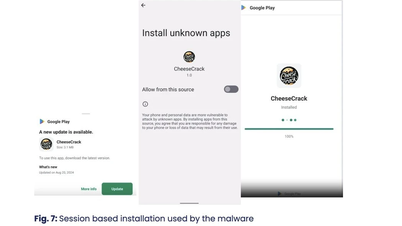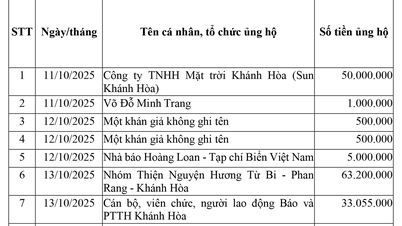The Matrix of Cyber Fraud
Recently, Hanoi City Police have warned about online travel booking scams. However, many victims continue to fall for these tricks.
The method of the subjects is to create websites and Facebook pages with interfaces similar to the official pages of resorts, hotels, and travel companies. Then, the subjects post articles selling rooms and travel programs at attractive prices with "fake" comments to create prestige and reach users.
After someone places and pays the deposit, the subjects give reasons such as: notice of incorrect transfer content; money being frozen on the system... asking the victim to transfer money many times according to instructions to book a room, get tickets, and get back the amount of money that was transferred incorrectly.

Ms. NTH (28 years old, living in Hanoi ). Last August, Ms. H. went online to search for a Phu Quoc travel combo and found a fanpage with a name similar to a famous resort, a professional interface, and a price only half the market price. Trusting her, she transferred 8 million VND as a deposit. After that, the fanpage informed her that she had written the wrong transfer content and asked her to send it back for a "refund". Ms. H. transferred two more times, a total of 16 million VND, before her contact was blocked and she lost all her money.
Another victim is Mr. TVP (34 years old, living in Ho Chi Minh City). Mr. P. searched for a tour to Da Lat on Facebook and was advised by an account claiming to be an employee of the travel company "Uy Tin Travel". The subject sent a contract, a fake seal and asked for a deposit of 5 million VND to "reserve a spot early". After he transferred the money, this "employee" continued to give the reason that "the money was stuck in the banking system", asking him to transfer more to "unlock the transaction". Mr. P. was suspicious, looked it up again and discovered that the real company did not have an employee with that name. When he returned to check, the account had disappeared.
Identification and prevention
To prevent fraud, Hanoi City Police advise people to:
- Be wary of room booking advertisements with prices that are too cheap compared to the market, compare prices on different platforms to ensure reasonableness, only book rooms through reputable platforms (such as: Booking, Agoda, Traveloka...).
- Carefully check the information and transparency of the fanpage posting travel bookings. Fraudulent fanpages are often newly created or have changed their names many times.
- Do not follow requests or instructions to transfer money to subjects for reasons such as incorrect text message syntax or money being frozen in the system.
- When detecting cases with signs of fraud and property appropriation, people need to go to the nearest police station to report the incident.
According to Mr. Vu Ngoc Son, Head of Technology Department, National Cyber Security Association, the common point in the scams of booking tours and cheap airline tickets is that bad guys take advantage of users' psychology of wanting discounts.
"The subjects do not need to use complex attack techniques, but only need to play on psychology: everyone wants cheap tickets, nice hotel rooms, good service during peak season. From there, they create attractive scenarios using fake fanpages and websites, making users voluntarily fall into the trap," Mr. Son analyzed.
In fact, many people who have traveled many times and have experience are still fooled by unbelievable promotional packages.
"Even pages with blue ticks, a sign of authenticity, can be fake. Because the subject can buy a real blue tick fanpage, then change the name to the name of a tourism business. This is a loophole in social network management that users rarely notice," Mr. Son warned.
In addition to fanpages, scam websites are also becoming more and more sophisticated. In just a few minutes, the subject can create a website with an interface identical to that of major travel agencies. They use easily confused domain names such as .com.vn, .net,... to deceive users.
Mr. Son recommends that users should carefully check the website address, not just trust the interface. At the same time, you can access the Ministry of Public Security's tinnhiemmang.vn page to check whether a website is authenticated by the authorities or not.
"If you see a promotion that is too attractive, especially during peak season, you need to ask questions. Verify information from multiple sources, do not transfer money via personal accounts, do not click on strange links, carefully check fanpage history and verify website domain name," said Mr. Son.
To check the reliability of a Facebook page, users can view information about the transparency of this Facebook page. To do this, you access the Facebook page you want to check information, click on "About". In the interface that appears, you click on "Page Transparency" and press the "See all" button.
In the dialog box that appears, you will see detailed information about the Facebook page, including the date the page was created, any name changes, and a list of the Facebook page's administrators.
If a Facebook page is newly created or frequently changes its name, with unrelated names, it is likely a Facebook page created for scam purposes.
This is because hackers can attack and take over a Facebook page with a large number of followers, then change the page name and add a blue tick to carry out fraudulent activities. In addition, based on the administrator information of the Facebook page, you can also guess whether it is a fake page or not.
If a Facebook page that usually provides information about Vietnam or is named after a famous person in Vietnam, but has a list of administrators located abroad, it is almost certain that this will also be a fake Facebook page that tricks users into accessing websites containing malicious code.
One thing users need to check carefully is the number of interactions with posts on Facebook pages. Many people are often subjective when seeing posts introducing products, offering services... with high interactions or many comments praising, responding... so they believe in the content of the post.
However, fake Facebook pages often use tools to artificially increase engagement, including the number of people clicking "Like" or comments on posts.
To check if the interactions on your Facebook page are fake or not, open the list of accounts that have interacted with your posts and access the personal pages of these accounts. You can easily see that most of the interactive accounts are fake, newly created or almost inactive on Facebook.
Nghe An Provincial Police Electronic Information Portal
Source: https://khoahocdoisong.vn/nguoi-dan-phai-bao-ngay-cho-cong-an-khi-nhan-duoc-tin-nhan-nay-post2149063027.html


![[Photo] Party Committees of Central Party agencies summarize the implementation of Resolution No. 18-NQ/TW and the direction of the Party Congress](https://vphoto.vietnam.vn/thumb/1200x675/vietnam/resource/IMAGE/2025/10/27/1761545645968_ndo_br_1-jpg.webp)

![[Photo] National Assembly Chairman Tran Thanh Man receives Chairman of the House of Representatives of Uzbekistan Nuriddin Ismoilov](https://vphoto.vietnam.vn/thumb/1200x675/vietnam/resource/IMAGE/2025/10/27/1761542647910_bnd-2610-jpg.webp)


![[Photo] The 5th Patriotic Emulation Congress of the Central Inspection Commission](https://vphoto.vietnam.vn/thumb/1200x675/vietnam/resource/IMAGE/2025/10/27/1761566862838_ndo_br_1-1858-jpg.webp)


































































































Comment (0)